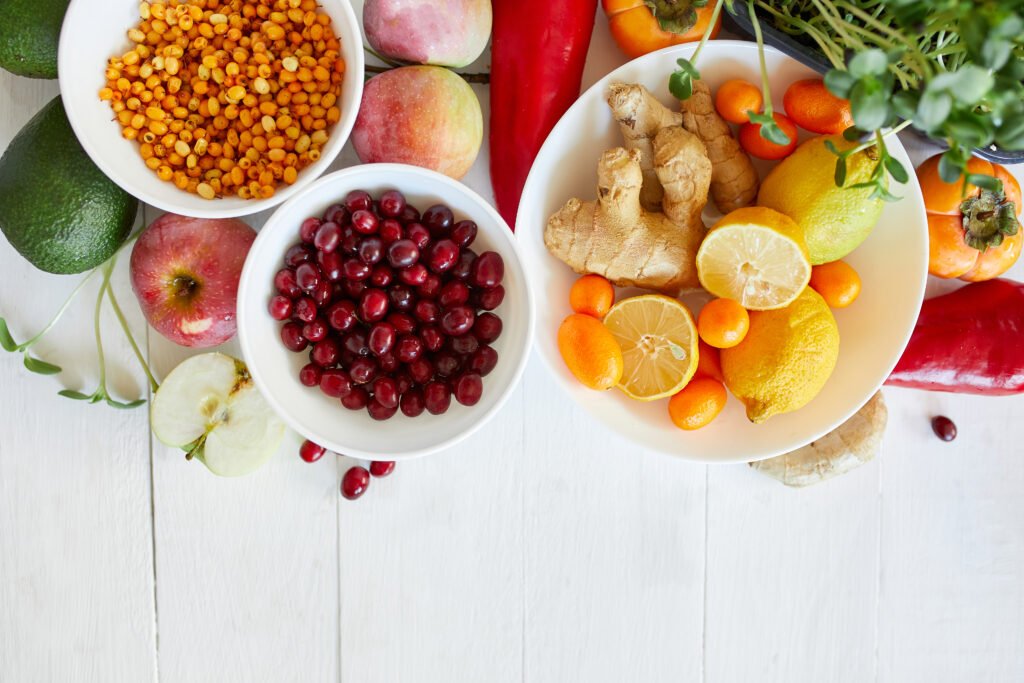Antioxidant are to remove toxicants,
There on enhance the immune system confidence.
Antioxidants are to add phytonutrients opulence,
There on enhance the immune system watchfulness.
Antioxidants are compounds that can help protect cells from damage caused by harmful molecules called free radicals. Free radicals are highly reactive molecules that are produced as byproducts of normal cellular processes or can be generated by external factors such as pollution, radiation, and certain chemicals. When free radicals accumulate in the body, they can cause oxidative stress, which has been linked to various health issues, including chronic diseases like cancer, heart disease, and neurodegenerative disorders.
Certainly! Here are some examples of foods that are high in antioxidants:
- Berries: Blueberries, strawberries, raspberries, blackberries, and cranberries are all rich in antioxidants like anthocyanins, which help protect the skin from oxidative stress.
- Citrus Fruits: Oranges, lemons, grapefruits, and limes are excellent sources of vitamin C, a powerful antioxidant that supports collagen production and helps maintain healthy skin.
- Dark Leafy Greens: Spinach, kale, Swiss chard, and collard greens are packed with antioxidants, vitamins, and minerals. They contain compounds like lutein, zeaxanthin, and vitamins A and E, which contribute to skin health.
- Tomatoes: Tomatoes contain lycopene, a potent antioxidant that gives them their red color. Lycopene helps protect the skin from sun damage and supports overall skin health.
- Nuts and Seeds: Almonds, walnuts, flaxseeds, chia seeds, and sunflower seeds are rich in antioxidants, healthy fats, and vitamin E, which can help maintain skin integrity.
- Green Tea: Green tea is loaded with catechins, a type of antioxidant that has been shown to have various benefits for the skin, including reducing inflammation and protecting against UV damage.
- Dark Chocolate: Dark chocolate (with a high percentage of cocoa) contains flavonoids and antioxidants that can improve skin hydration, texture, and overall appearance. Moderation is key due to its calorie and sugar content.
- Red Grapes: Red grapes contain resveratrol, a powerful antioxidant that has been associated with anti-aging benefits and protection against skin damage caused by environmental factors.
- Sweet Potatoes: Sweet potatoes are rich in beta-carotene, a precursor to vitamin A that acts as an antioxidant. Vitamin A supports skin cell turnover and helps maintain a healthy complexion.
- Turmeric: Turmeric contains curcumin, a potent antioxidant and anti-inflammatory compound. Incorporating turmeric into your diet can help promote a healthy and glowing complexion.
These are just a few examples of antioxidant-rich foods. Including a variety of colorful fruits, vegetables, nuts, seeds, and plant-based foods in your diet can provide a wide range of antioxidants that support skin health and overall well-being.
While we often associate antioxidants with food sources like fruits, vegetables, and certain beverages, they can also be found in the environment. Here are a few examples of antioxidants in the environment:
- Plants: Many plants produce antioxidants as part of their defense mechanisms against environmental stressors. These antioxidants help protect the plant cells from damage caused by sunlight, pollutants, and other factors. Examples of plant-based antioxidants include flavonoids, carotenoids, and phenolic compounds.
- Soil: Soil contains various organic matter and microorganisms that produce antioxidants. These antioxidants help protect the soil ecosystem by neutralizing free radicals and reducing oxidative stress. Some examples of antioxidants found in soil include humic acids, fulvic acids, and microbial metabolites.
- Air pollutants: Although air pollutants themselves can generate free radicals and contribute to oxidative stress, certain compounds present in the atmosphere can act as antioxidants. For example, ozone (O3) in the upper atmosphere acts as a protective shield against harmful ultraviolet (UV) radiation from the sun.
- Water: Some natural water sources, such as springs and mountain streams, may contain antioxidants derived from plants and minerals present in the surrounding environment. These antioxidants can help neutralize free radicals and provide health benefits when consumed.
It’s important to note that while environmental antioxidants may have benefits, the most significant dietary sources of antioxidants come from fruits, vegetables, nuts, and seeds. These food sources provide a wide range of antioxidants that are easily absorbed by the body and play a crucial role in maintaining overall health and well-being.
Food items to avoid
It’s advisable to limit or avoid certain food items that may negatively affect skin health:
- Processed and Sugary Foods: Foods high in processed sugars and refined carbohydrates can contribute to inflammation and may exacerbate skin issues. Limit your consumption of sugary snacks, sodas, and processed foods.
- High Glycemic Index Foods: Foods with a high glycemic index, such as white bread, white rice, and sugary cereals, can cause blood sugar spikes. These spikes have been linked to increased acne and skin inflammation in some individuals.
- Excessive Alcohol Consumption: Alcohol can dehydrate the body and deplete essential nutrients, which can impact the skin’s appearance and contribute to dullness. Moderation is key, and it’s advisable to drink alcohol in moderation and balance it with adequate hydration.
- Trans Fats: Trans fats, often found in processed and fried foods, can promote inflammation and may negatively affect skin health. Avoid or limit consumption of foods high in trans fats.
Remember, maintaining a balanced diet that includes a variety of nutrient-dense foods is key for overall health, including skin health. It’s important to note that individual responses to food can vary, and if you have specific concerns or dietary restrictions, it’s best to consult with a healthcare professional or registered dietitian for personalized advice.
